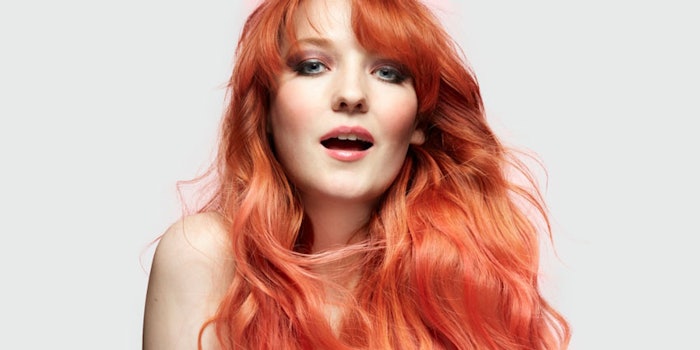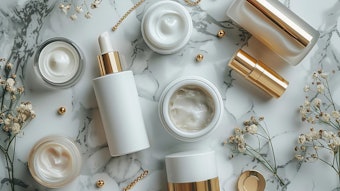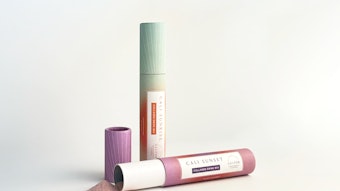
Niche lifestyles are becoming more prevalent and mainstream due to the millennial generation, which is leading with ideas to save our dying planet. Therefore, ethical beauty products must be designed for the consumer of today, accounting for sustainability, veganism and cruelty-free requirements, and price point.
For My. Haircare, we developed the following checklist of key considerations:
- Certification
- Regulation
- Transparency
- Traceability
- Performance
- Origins (supply chain)
- Transparency
- Formulation
- Testing
- Technologies
Identify Your Wants and Want Nots
One key to succeeding in creating a product or brand is to know your wants and want nots. For example, as professional hairdressers, we knew that we wanted to demonstrate that hair can be colored and have tonal change instantly, but we insisted on not using PPD ammonia or peroxide.
We wanted a clean, high-performance formula that was 100% vegan. Additionally, the formula needed to eliminate color fade and change tones without the commitment of timely color salon services.
This list of wants and want nots drove our formulations.
Meeting Ethical Demands
The vegan cosmetics industry is booming, due to the rise of the cruelty-free movement. an increase in consumer demand for ethical, non-animal based products. This trend arose globally from “against animal testing” Movement and many major retailers are seeing a significantly high percentage of increase in on vegan cosmetic searches online.
These views are reinforced within social media among those who are like-minded. This peer-to-peer social movement should not be ignored by those who want to succeed in creating a brand or product line for those who would declare, for example, “There is an outlet for approval from peer to peer to say, for example, “I care about animals, therefore I am against animal testing and only use vegan products in my daily regime.”
Consumer ethical requirements pertain mainly to certification. To satisfy these consumer requirements, a brand must address regulations, transparency, traceability, performance and supply chain origins within the realms of their research and development.
In this way, companies can secure seals and logos that indicate that a product and/or brand is fully vegan. An example would be PETA’s Beauty Without Bunnies or the Cruelty-Free and Vegan label.
Transparency Challenges
Readily available information online makes everyone an expert. This access gives everyone the opportunity to make their own choices and values based on opinions. The shortcoming is that, in some cases, information is not based on scientific facts or evidence.
Meeting the criteria for 100% vegan requires transparency, from sourcing base ingredients to independent testing. However, outsourcing independent testing can prove challenging when it comes to looking for facilities that do not conduct animal testing for other companies or government bodies. Therefore, for today’s formulations, it is becoming a requirement to work with certified and transparent facilities.
Outlining Lifestyle Needs
Beyond ethical considerations, lifestyle must also be considered. For example, we needed our brand to be gender neutral; both men and women could use it and appreciate it. In addition, while the experience with the product might slightly differ, its functionality must satisfy all ages. In addition, the products needed to translate well for posts and testimonials online or via other tech mediums.
Finally, it was critical to ensure that the product did what was claimed on the bottle.
Designing With the Consumer in Mind
Designing with the consumer in mind will determine the success or failure of formulations for niche lifestyles. In doing so, it is important to take into account all angles, from environmental concern to how much they spend on the end product.
For example, the design conceit of My. Haircare was to prolong color vibrancy, meaning clients do not need to use permanent dye as often and thus fewer chemicals are put into the water in the long run. The solution was a long-lasting product with a high concentration of pigment.
To meet the formulation’s ethical requirements, My. Haircare was built to be 100% vegan and sulfate-, paraben- and silicone-free.
The product needed to be accessible globally in shops and online at an approachable price point, and was designed for easy at-home use.
We also focused on packaging, which helps contribute to the overall sustainability of the brand. Sustainably sourced materials and polyethylene terephthalate (PET) bottles were considered because they can be recycled.
We define the term "wellness" as caring for the earth, from the product itself to its packaging. In order to reach our goal of being a wellness brand, our packaging labels are now silk screen printed instead of using paper labels. By 2020, we plan on offering 100% post-consumer recycled plastic packaging that is also biodegradable.
How the brand ships its stock was also reviewed, as reducing cardboard or the use of screen-printed bottles instead of labels can reduce paper and glue usage.
European Challenges
The European cosmetics industry must not only comply with the cosmetics animal testing and marketing bans (under the Cosmetics Regulation 1223/2009/EC), it must also meet the terms of REACH, the EU regulation that requires any company wanting to market a particular chemical substance to register said chemical. REACH has a list of requirements, many of which demand to test on animals.
Seeing the Bigger Picture
The mission of an ethical brand built around ideals is not only about packaging or the raw ingredients that go into a product. It is not only about avoiding ineffective naturals that do not work well and deplete natural resources. It is about seeing a bigger picture, one that leads to a product that highlights a face well or creates glossy-washed tresses of hair without compromising the user’s core beliefs.
Creative duo Rob Forgione and Denis Kovalyov have 35 years of combined hair experience working as hairdressers, educators and platform artists globally. Traveling the world launching hair care brands in 12 countries, their experience and passion for hair have led them to the creation of My. Haircare. Their formulations are premium in category while being vegan, PETA certified and free from sulfates, parabens and silicones. With strategic market research in the consumer and professional salon markets, they bridge the gap between effective color-depositing shampoos and conditioners and ethical formulations.










